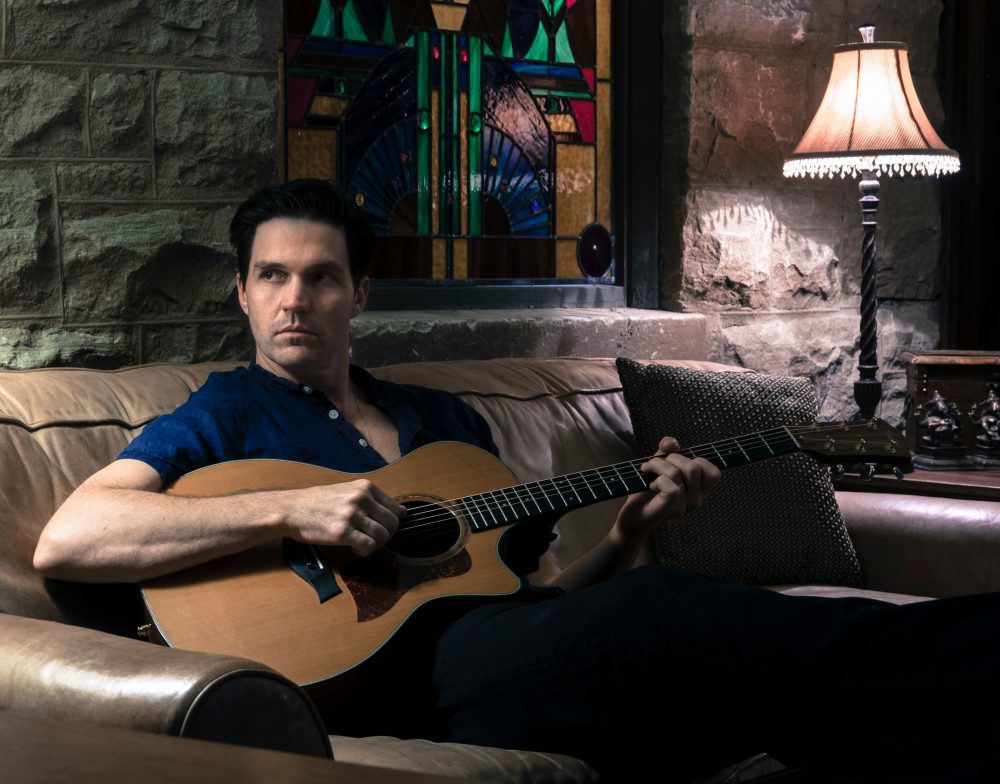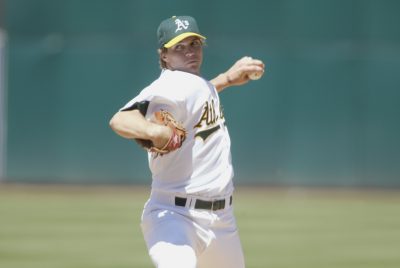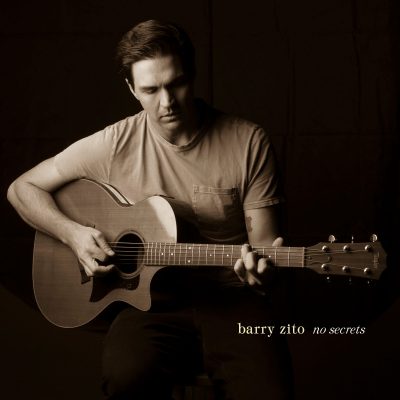Advertisement
15 Years After Cy Young Award, Barry Zito Hits The Billboard Charts

The parents of former Major League pitcher Barry Zito may have fallen in love to a Nat King Cole tune. Could have happened that way. They were both working for him when they met — Barry’s future mom as a backup singer and dancer, and his future dad as an arranger and conductor.
Barry was born after his parents had left the Nat King Cole orchestra. The family moved to San Diego, where, according to Zito, though the weather was great, the opportunities for his dad were limited.
"There was no music industry," Zito says. "So, my father, then, didn’t have, really, an outlet creatively."
So Dad was in the market for something to do, and young Barry gave it to him: T-ball.
Stick To Baseball
"He didn’t know a whole lot about sports," Zito says. "And so he would read these baseball books at night by himself, and the next day, we would go through a couple pages, and I would learn all these things. And, of course, I thought he knew the whole book, in and out, but really he was just a couple pages ahead of me."
Those must have been some baseball books. Barry Zito became a heck of a major league pitcher. Won a Cy Young Award. But I’m getting ahead of myself.
While he was still a kid, Zito got some career advice from his father, the musician, who taught him nothing about music.

"He actually didn’t want me going into music," Zito says. "He knew how difficult it was to make it in the music world. And his approach was always, you know, 'You master three pitches, and baseball will send out these scouts to the ends of the earth to find you.' Whereas, you could be the greatest musician ever, but if you don’t have the right people behind you, pushing you, and the right machinery, you may never go."
Still, the Nat King Cole connection must have been lurking somewhere in young Zito’s psyche, because after the scouts had, in fact, come looking for him, and the Oakland Athletics had signed him, he figured — correctly — that as a minor league ballplayer, he’d have a lot of time to kill.
"I wanted something to do while I was gonna be stuck in these hotel rooms and on these bus trips," he says. "So I got a signing bonus and I bought a guitar. You know, just started learning how to play a couple chords."
Barry Zito’s ascension from plunker of chords to semi-competent sideman happened during the offseasons, courtesy of his sister, who’d embraced her music heritage, gotten a degree from the Berklee College of Music and started performing.
Advertisement
"So I kind of really upped my game to be a part of her band," Zito says.
Meanwhile, Zito had been upping his other game — the one his father had taught him so he wouldn’t have to be a musician. He made his Major League debut in 2000 with the A’s. He won that Cy Young Award in 2002. And, in 2006, he signed with the Giants for $126 million. No pitcher had ever signed for more. So he should have been on top of the world. But he wasn’t.
'What Was I shooting For This Whole Time?'

"You know, you kind of get boxed in, I think, as a professional athlete to a certain stereotype," Zito says. "A lot of times, I think my whole career, I felt a little bit out of place in a locker room. And I would say things that were probably a little bit different or maybe making myself more vulnerable than most, and I got labeled as flaky or eccentric. If you don’t fall right into that stereotype now, you’re just kind of an outcast."
Some of his teammates were happy enough with what they’d achieved and were achieving. Zito wasn’t.
"Generally, in society, we’re raised to worship these idols — these false idols, I guess you could call it — of money, fame, adoration, success," he says. "But for the people that do get some of that stuff, you realize it’s empty. And what was I shooting for this whole time? And I think there’s a sense of despair once you realize that it’s not there. It’s not in that."
The "despair," if that’s not too dramatic a term for what the multimillionaire pitcher was feeling, was fed by Zito’s failure to live up to the expectations created by that record-breaking $126 million contract. Zito lost 30 games in his first two seasons with the Giants, winning only 21. San Francisco fans started booing him. He was called a bust. At the end of the 2010 season, he was left off the postseason roster. San Francisco won the World Series without him.
"It was a very painful time for me — that offseason in LA," he says. "And I think part of me just wanted to get away from baseball. And I went and recorded with a few friends at this really great studio in Burbank. I would wake up and train from like 7 a.m. to 11 a.m. for baseball, and then I’d go right to the studio in my sweaty athletic gear up until about 10:30 at night."
A Happy Life In Music
During the next season, Zito wrote the song "Home."
The spotlight told lies, I bought every last one,
Traded family and friends in for fortune and fun.
Then it all crashed down, as I swung my wrecking ball,
Waiting in the aftermath was the reason for it all.
No wonder he'd spent such long hours in the studio. Finding "reasons for it all" can’t have been easy. Meanwhile, his wife was concerned. She told him to slow down. There would be plenty of time for songwriting after baseball. Zito took her advice, and his state of mind improved. He also credits his faith.
It all worked, and in 2012 he went 15-8 and won games in both the National League Championship Series and the World Series, which meant he had a World Series ring he really felt he’d helped the team earn. He pitched for a couple more years, finishing up with Oakland’s Triple-A team in Nashville, which was spectacularly convenient.

"I started co-writing here in Nashville, literally, the week that I retired," he says. "And haven’t stopped since. I think I’m just genuinely more in love with what I do now than I probably ever have been."
Meaning, I suppose, that if you’re a professional musician and you have a kid, you should probably steer him toward baseball, since that’s the path that will eventually lead him to a happy life in music. Or something.
Barry Zito’s EP, “No Secrets,” was released in January. It reached No. 39 on Billboard's country album sales chart. That made Zito the first Cy Young winner to appear on the Billboard charts.
This segment aired on August 26, 2017.

